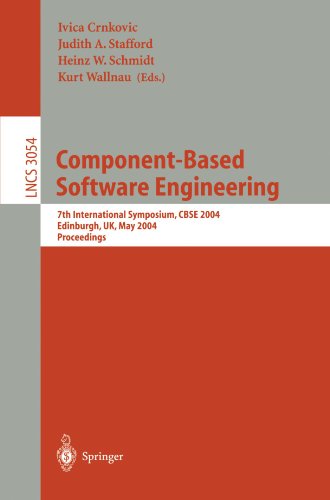

Most ebook files are in PDF format, so you can easily read them using various software such as Foxit Reader or directly on the Google Chrome browser.
Some ebook files are released by publishers in other formats such as .awz, .mobi, .epub, .fb2, etc. You may need to install specific software to read these formats on mobile/PC, such as Calibre.
Please read the tutorial at this link: https://ebookbell.com/faq
We offer FREE conversion to the popular formats you request; however, this may take some time. Therefore, right after payment, please email us, and we will try to provide the service as quickly as possible.
For some exceptional file formats or broken links (if any), please refrain from opening any disputes. Instead, email us first, and we will try to assist within a maximum of 6 hours.
EbookBell Team

4.1
100 reviewsComponent-based software engineering (CBSE) is concerned with the devel- ment of software-intensive systems from reusable parts (components), the dev- opmentofsuchreusableparts,andthemaintenanceandimprovementofsystems by means of component replacement and customization. Although it holds c- siderable promise, there are still many challenges facing both researchers and practitioners in establishing CBSE as an e?cient and proven engineering dis- pline. Six CBSE workshops have been held consecutively at the most recent six International Conferences on Software Engineering (ICSE). The premise of the last three CBSE workshops was that the long-term success of component-based development depends on the viability of an established science and technology foundation for achieving predictable quality in component-based systems. TheintentoftheCBSE2004symposiumwastobuildonthispremise,andto provide a forum for more in-depth and substantive treatment of topics perta- ing to predictability, to help establish cross-discipline insights, and to improve cooperation and mutual understanding. The goal of the CBSE 2004 symposium was to discuss and present more complete and mature works, and consequently collect the technical papers in published proceedings. The response to the Call for Papers was beyond expectations: 82 papers were submitted. Of those 25 (12 long and 13 short) were accepted for publication. In all 25 cases, the papers were reviewed by three to four independent reviewers. The symposium brought together researchers and practitioners from a variety of disciplines related to CBSE.